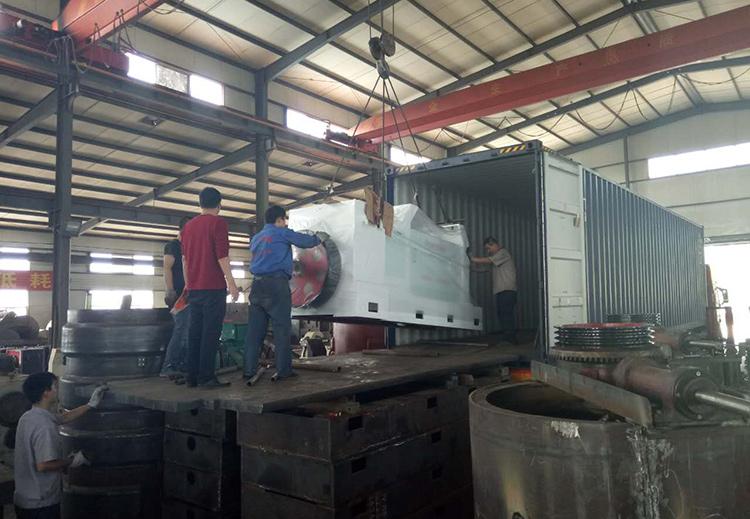Sep . 30, 2024 22:03 Back to list
Processes and Products of Physical Oil Refining Machinery Explained
The Evolution and Significance of Physical Oil Refining Machines
Oil refining is a vital process in the production of petroleum products, transforming crude oil into various fuels, lubricants, and raw materials for the petrochemical industry. The efficiency and effectiveness of this process largely depend on the technology and machinery employed in oil refining. In recent years, physical oil refining machines have become essential components of this industry, significantly impacting the quality and yield of the final products.
Understanding Physical Oil Refining
Physical oil refining is a method that utilizes physical processes to remove impurities from crude oil, resulting in high-quality oil that meets market standards. Unlike chemical refining, which often involves the use of solvents and other chemicals, physical refining focuses on methods such as degumming, neutralization, and bleaching. This approach is particularly beneficial for producing high-quality edible oils and biodiesel, as it avoids the introduction of potentially harmful substances into the final product.
The key processes in physical oil refining include
1. Degumming The removal of phospholipids and other impurities from crude oil. This step is crucial for enhancing oil stability and preventing the formation of off-flavors in food products.
2. Neutralization This process involves the treatment of oil with alkali to eliminate free fatty acids, which can negatively affect the taste and shelf-life of edible oils.
3. Bleaching In this phase, natural pigments and other contaminants are eliminated using adsorbents such as activated clay or carbon. This step ensures that the final oil has a clear appearance and meets market color specifications.
4. Deodorization This step involves the removal of volatile compounds that contribute to undesirable odors and flavors. High-temperature steam distillation is commonly used in this process, resulting in a neutral and pleasant-smelling oil.
The Machinery Behind Physical Oil Refining
The machinery used in physical oil refining has evolved significantly over the years. Modern oil refining plants are equipped with advanced systems that enhance efficiency and reduce energy consumption. Key pieces of equipment include
- Degumming Towers These towers facilitate the separation of gums from the oil using water or acid
. They are designed for efficiency, allowing for the continuous processing of large quantities of oil.physical oil refined machine products

- Neutralizers These reactors are employed to treat the oil with caustic soda, enabling the effective removal of free fatty acids. Their design allows for optimal mixing and reaction times.
- Bleaching Filters These filters use adsorbents to effectively remove colored impurities while ensuring minimal loss of oil. Modern designs include multiple stages that improve throughput and product quality.
- Deodorization Units State-of-the-art deodorization units utilize steam under high pressure and temperature to ensure that the oil retains its desirable attributes. The technology has advanced to allow for continuous operation and better energy efficiency.
The Benefits of Physical Oil Refining Machines
The advantages of utilizing physical oil refining machines are manifold
- Improved Product Quality The refined oils obtained through physical refining exhibit superior taste, aroma, and color, appealing to consumers and businesses alike.
- Higher Yield Advanced refining machines are designed to maximize oil recovery, ensuring that more product is extracted from the crude oil, which translates to better profitability for producers.
- Environmental Sustainability The physical refining process is generally more eco-friendly than chemical methods, as it minimizes the use of harmful solvents and reduces waste generation.
- Market Flexibility With the capability to process various types of crude oil, physical oil refining machines provide flexibility for producers to adapt to changing market demands and oil supply variations.
Conclusion
The realm of physical oil refining is instrumental in ensuring the production of high-quality oils that serve various applications, from cooking to industrial uses. As technology continues to advance, the machinery involved in this process will also evolve, leading to even greater efficiencies and product quality. Embracing innovative refining methods will be essential for meeting the growing global demand for refined oil products while also adhering to environmental sustainability principles.
-
HP 120 Model Cold Oil Press - Hebei Huipin Machinery Co., LTD | Labor-Saving, Multi-Functional
NewsAug.06,2025
-
HP 120 Cold Oil Press - Hebei Huipin | Oil Extraction, High Efficiency
NewsAug.06,2025
-
HP 120 Cold Oil Press - Hebei Huipin | High Efficiency & Versatility
NewsAug.06,2025
-
Durable & High Yield Industrial Soy Bean Oil Press Machine
NewsAug.06,2025
-
Commercial High-Efficiency Oil Expeller Press
NewsAug.05,2025
-
LZY-206 Twin-Screw Cold Press: Efficient Oil Extraction
NewsAug.04,2025
